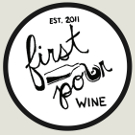Welcome to our third post in our series on the wines of Portugal. If you want to start at the beginning, head over to Dão, and then click through to the right. Today we’ll be moving south to Alentejo!
Alentejo
Alentejo is better known for corks than wine. For years, the region grew almost half the cork for the planet, and wine production was minimal. Despite being relatively small, by comparison to the plantings in the north, Alentejo wines have potential thanks to modern winemaking. From time to time this has been picked up on internationally, with even the famous Lafite Rothschilds investing in Quinta do Carmo in the early 1990s. The wines have been slow to pick up, but when they shine, they’re rockstars. As a result, low prices are still the order of the day, with reds leading the charge.
Quick Summary on Alentejo:
- Known for: Strapping red wines, plummy, spicy.
- Best Wine Style: Red
- Best Varietals: Aragonês (Tempranillo), Trincadeira Preta, Periquita, Syrah
- Notable Producers: Herdade do Esporão, Reynolds (Mouchão)
- Occasionally Labeled As: Alentejano
Ciconia Touriga Nacional 2012
Although it may not be the best known varietal in the region of Alentejo, Touriga Nacional crops up in Alentejo as well. While it does great in Douro, how does it fare in down south in Alentejo?
Sight: A little more toward the garnet side of the sprectum with a hint of orange starting to show through the corners.
Smell: The nose is a complex mix of red raspberries, spiced red plums, cloves, black tea, and wild herbs. Jammy blueberries and licorice get into the act. The amount of spice on the nose drives many of the complexities with the jammy fruits behind it.
Sip: The texture is fleshy, and boarders into a weightier feel than might be expected on the eyes. The texture partially derives from the strength of the tannins, which get into play from the word go. They’re not refined, gentle tannins either, but they’re not uncouth either, more just uncertain of which way they want to go. The flavors all ratchet deeply into the brooding side of the spectrum, with dark plums, jammy blackberries, wine soaked olives, and balsamic all playing prominently. Spices, tea, and a campfire all add further depth.
Savor: The ending is fiercely tannic, pulling out black tea, campfire, and roasted plums in aggressive quantities.
Ciconia Touriga Nacional is amazingly complex, deeply full of potential, and mired in self doubt like a teenager that is actually talented, but not quite sure of it. The nose and body both have edgy moments, but ultimately the sum of the amazing flavors and smells overcome the few flaws to make a delicious, deeply complex wine for less than $10. Frankly, speaking, if you see Ciconia Touriga Nacional and you like your reds more dark and mysterious, than this is an easy must try.
Verdict: Complex, Blackberries, Black Plums, Spice, Black Tea, Tannic
Rating: 92
Price: $8
Alentejano, Portugal
